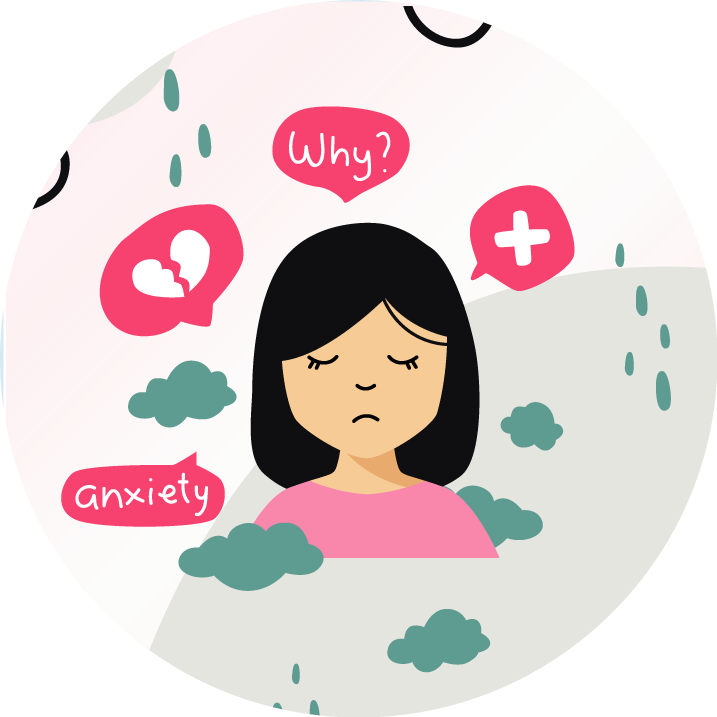Mental Health Checks Before Starting a Live-in Relationship

Mental Health Checks Before Starting a Live-in Relationship
September 22 2025 TalktoAngel 0 comments 27 Views
As relationships evolve in modern society, live-in arrangements have become increasingly popular. For many couples, cohabitation offers a trial run before marriage or a long-term commitment. While compatibility, shared values, and communication styles often dominate discussions before moving in together, mental health remains an often-overlooked aspect. In reality, understanding each partner's psychological well-being can be just as important as knowing their favorite food or bedtime routine. This blog explores the significance of mental health checks before entering a live-in relationship and how psychological readiness can impact long-term relational satisfaction.
Why Mental Health Matters in Live-in Relationships
Mental health plays a central role in shaping our behaviour, emotional regulation, communication, and coping mechanisms—all crucial elements in a live-in dynamic. Living together exposes both partners to each other’s daily habits, stressors, and emotional responses. Without proper awareness or readiness, unresolved psychological issues may amplify under the same roof, leading to interpersonal conflict, emotional burnout, or even codependency.
In contrast, a psychologically aware partnership creates space for healthy boundaries, emotional safety, and mutual support, all of which are critical to a nurturing cohabitation.
The Psychology Behind Relationship Readiness
Before discussing specific mental health checks, it’s important to understand what it means to be relationship-ready from a psychological standpoint. Psychologists often refer to attachment theory, which examines how our early bonds shape our relationship behaviours. For instance, someone with an anxious attachment style may require constant reassurance, whereas someone with an avoidant attachment style might withdraw during conflict. These tendencies can intensify in a live-in setting.
Additionally, emotional intelligence—the ability to identify, understand, and manage one’s emotions and the emotions of others—plays a pivotal role in conflict resolution, empathy, and long-term satisfaction. Couples who score high in emotional intelligence often navigate challenges more effectively than those who don't.
Essential Mental Health Checks Before Moving In
- Personal Therapy or Psychological Assessment:-Seeking therapy or undergoing a psychological check-up can help individuals understand their emotional triggers, unresolved trauma, and coping mechanisms. This self-awareness not only helps in managing personal stress but also improves relationship quality.
- Communication Styles and Conflict Resolution:-Consider how both partners handle disagreements. Do they engage in constructive dialogue or fall into defensive behaviours like stonewalling, blaming, or passive aggression? A therapist can assist in identifying these patterns and teaching healthy conflict resolution skills.
- History of Mental Health Disorders:-Being transparent about diagnoses such as anxiety disorders, depression, bipolar disorder, or PTSD is essential. While a diagnosis doesn’t disqualify anyone from a relationship, knowing how to support one another in times of mental distress builds trust and stability.
- Attachment Styles: Knowing each partner’s attachment style can help anticipate how they may react to emotional closeness, autonomy, or arguments. Tools like the Adult Attachment Interview or self-assessments guided by a psychologist can provide valuable insight.
- Stress and Coping Mechanisms: How each partner handles stress—whether from work, family, or finances—can heavily affect the home environment. Assessing coping styles such as problem-focused coping versus emotion-focused coping can reveal potential compatibility or areas for growth.
- Boundaries and Autonomy:- Mental health evaluations should explore a person’s ability to maintain boundaries. Enmeshment, or a lack of emotional distinction between partners, can lead to codependent dynamics. A healthy relationship balances closeness with independence.
- Substance Use or Behavioural Addictions: It’s important to disclose and discuss issues like alcohol dependency, gambling, or internet addiction. These can escalate when two people live together, potentially affecting finances, emotional health, and trust.
Building Psychological Safety in the Relationship
Creating a safe emotional environment means both partners feel secure expressing their thoughts, feelings, and needs. This involves:
- Practicing active listening
- Validating each other’s emotion
- Avoiding psychological manipulation tactics like gaslighting
- Regularly checking in on each other's emotional state
In some cases, couples therapy—even before moving in—can be a proactive step. Premarital or pre-cohabitation counselling isn't just for those with problems; it's a preventive tool that strengthens emotional foundations.
The Role of Compatibility and Growth Mindset
While mental health checks can highlight areas of potential difficulty, they can also showcase how adaptable and resilient both partners are. A growth mindset—the belief that both individuals can evolve through effort and learning—is key to a successful live-in arrangement. When couples view challenges as opportunities to grow rather than threats, they build emotional resilience together.
Red Flags to Watch Out For
While every couple faces occasional struggles, certain patterns are concerning and should not be ignored:
- Emotional volatility that escalates into verbal or physical aggression
- Persistent depressive symptoms that go unaddressed
- Manipulative behaviours like guilt-tripping or isolation
- Refusal to seek help when clearly needed
Conclusion: A Healthy Mind Makes a Healthy Home
Moving in together is a significant emotional and psychological step, not just a logistical one. Conducting mental health checks beforehand can reveal important dynamics, ensure emotional preparedness, and foster a relationship built on honesty and mutual care. Platforms like TalktoAngel, which provide online counselling with the best therapists in India, make it easier for couples to seek professional support before taking this step.
From a psychological perspective, understanding concepts like attachment styles, emotional intelligence, coping mechanisms, and communication patterns equips couples to better navigate the complexities of shared life. Ignoring mental health may not just affect the individual, but also the emotional climate of the entire relationship.
Ultimately, a live-in relationship can be a fulfilling and enriching experience when built on the solid foundation of mental well-being, emotional maturity, and mutual respect. Investing time in psychological health and physical health through professional guidance before sharing a living space is not only wise—it’s an act of love.
Contributed by: Dr (Prof.) R K Suri, Clinical Psychologist & Life Coach, & Ms. Mansi, Counselling Psychologist
Reference
- Adult attachment and relationship outcomes: Examining the mediating role of emotional disclosure. Journal of Social and Personal Relationships, 26(4), 511–530. https://doi.org/10.1177/0265407509350871
- Premarital predictors of marital quality and stability. Family Relations, 43(2), 228–237. https://doi.org/10.2307/585327
- The longitudinal course of marital quality and stability: A review of theory, methods, and research. Psychological Bulletin, 118(1), 3–34. https://doi.org/10.1037/0033-2909.118.1.3
Leave a Comment:
Related Post
Categories
Related Quote

“Remember: the time you feel lonely is the time you most need to be by yourself. Life's cruelest irony.” - Douglas Coupland

“Anxiety is a thin stream of fear trickling through the mind. If encouraged, it cuts a channel into which all other thoughts are drained.” - Arthur Somers Roche

“You say you’re ‘depressed’ – all I see is resilience. You are allowed to feel messed up and inside out. It doesn’t mean you’re defective – it just means you’re human.” - David Mitchell, Cloud Atlas

“My anxiety doesn't come from thinking about the future but from wanting to control it.” - Hugh Prather

"Difficulties in your life do not come to destroy you but to help you realize your hidden potential and power. Let difficulties know that you too are difficult." - APJ Abdul Kalam
Best Therapists In India





























SHARE